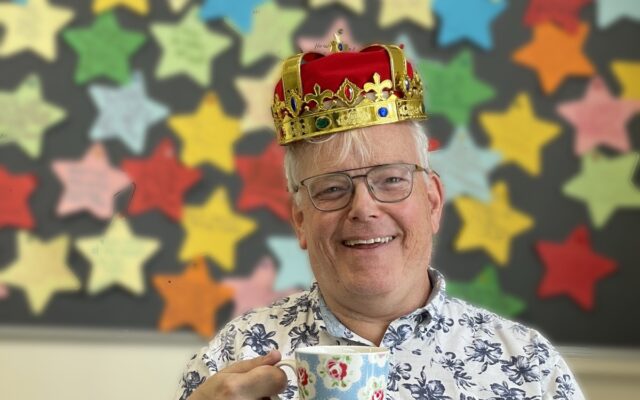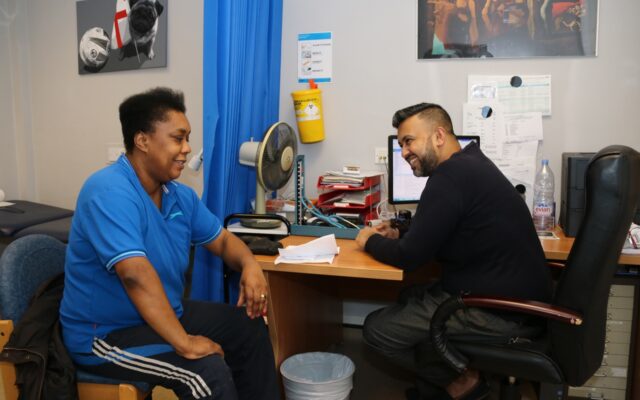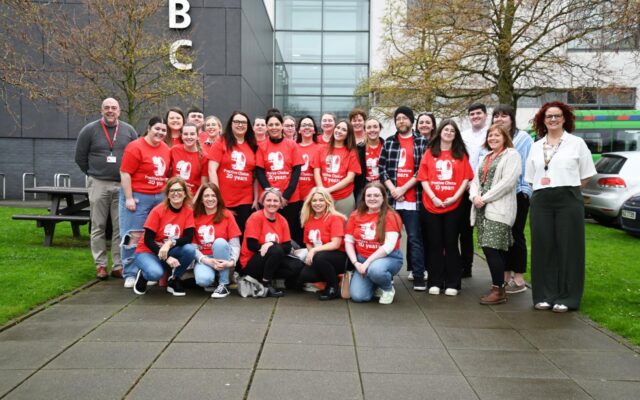Jen Blackwell is a dancer on a mission. But her journey has been far from straightforward.
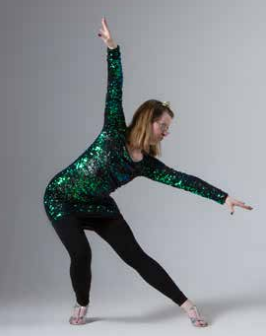 Jen, 39, happens to have Down syndrome. She is the founder, director and queen of the charity DanceSyndrome. At the age of 21, Jen threw down the challenge to her parents and society: “I live for dance. I have the right to a life of my choosing. My future lies in dance.” Dance courses through Jen’s veins, oozes from her pores, impacts every aspect of life. She is determined to share the fun, the joy, the happiness and the resultant wellbeing of mind, body and soul. And to travel the world with her dance. How to achieve?
Jen, 39, happens to have Down syndrome. She is the founder, director and queen of the charity DanceSyndrome. At the age of 21, Jen threw down the challenge to her parents and society: “I live for dance. I have the right to a life of my choosing. My future lies in dance.” Dance courses through Jen’s veins, oozes from her pores, impacts every aspect of life. She is determined to share the fun, the joy, the happiness and the resultant wellbeing of mind, body and soul. And to travel the world with her dance. How to achieve?
Direct payments have been pivotal in achieving this dream. Personalisation has long been with us, with policy strategies aiming to put people at the centre of decisions about their lives. Jen has to be immersed in dance. Dance is fundamental to meeting her needs. Over the years, she has become more able to understand and express what is key to her wellbeing. This includes leadership, participation, dance she can choose to embrace – including up-tempo street as well as aesthetic contemporary and ballet – creating and performing choreography, and working alongside other dancers with and without learning disabilities.
Being listened to and believed in, having advocates fight her corner and exploring opportunities with appropriate support have all been part of the journey. Perhaps most importantly, her body language has been given a voice. This is personalisation. Positive, vibrant, thriving and living a life of her choosing – these words aren’t always associated with people with learning disabilities. Neither is feeling on top of the world nor being almost permanently wreathed in smiles. But this is Jen’s life where learning disability, dance, leadership and inclusion belong side by side every minute of every day. The busier Jen is, the happier, more fulfilled and more confident she is. She loves being in demand, in control of her life and living her dream. Jen is sought out as a performer and workshop leader, and contributes to conferences, training, university seminars and webinars.
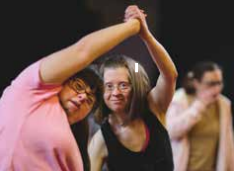
She has won numerous awards. Most recently, she was made a judge for the Shaw Trust Disability Power 100, having been a winner in the previous three years. Thanks to reasonable adjustments, Jen has been totally engaged, feeling valued and respected and able to express her opinions, and also felt listened to. With her direct payments used flexibly and creatively, Jen’s assessed needs are met and she can choose which carers she works with. She has to dance at least twice a day. Jen needs dedicated, empathetic support in all areas of her life and real, meaningful interaction with others through dance. She needs a place she calls home where she is secure and her personality can shine through. As a housing association tenant, she holds the keys to her own front door. She is a valued member of her community, coming and going as her busy life demands. Her hobbies include playing her flute with her “flute monkey mate” (skilled, dedicated flute support), playing in two musical groups and karate.
Life is never without challenges; there will always be
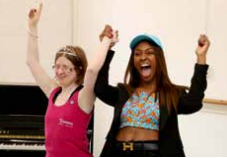
bumps in the road. When nothing seems to make sense or when Jen is behaving out of character, the duty lies with Jen’s carers and friends to determine, understand and unravel the cause. Jen is the best teacher we will ever have. We have learnt the problem isn’t Jen’s learning disability – that’s just a part of her makeup. If Jen was denied the opportunity to live her life through dance, this story would not exist. She would be just another statistic sitting in a day centre or isolated at home, bored, obese, lacking identity or purpose and inevitably becoming a significant drain on the public purse. Statistics suggest her life would be 20 years shorter than the lives of her non-disabled peers.
With the support of her parents, Jen set up DanceSyndrome in 2009, which became an inclusive dance charity led by dancers with learning disabilities in 2013. It has enhanced the lives of countless people. I am incredulous at Jen’s life. I am so proud of her focus, thrilled her passion is benefiting others and delighted she now has the joy of meaningful friendship.


